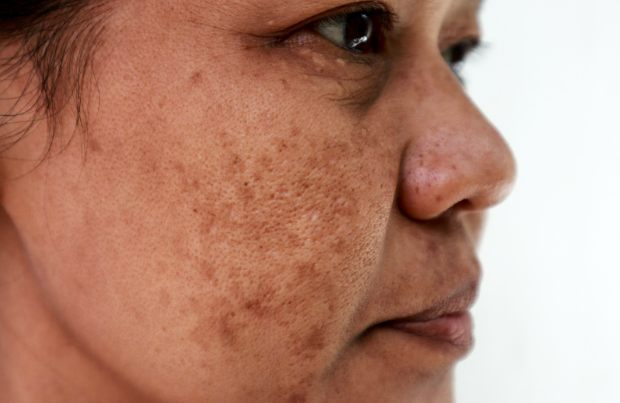Melasma

Melasma is a common skin condition characterized by dark, discolored patches on the skin, primarily affecting the face. Melasma usually presents as brown patches on:
- The cheeks
- Forehead
- Bridge of the nose
- Upper lip
- Jawline
The primary causes of melasma include:
- Sun exposure: UV light stimulates melanocytes, leading to pigment overproduction.
- Hormonal changes: Pregnancy (“the mask of pregnancy”), oral contraceptives, and hormone replacement therapy.
- Genetics: A family history increases the risk.
- Certain medications that make the skin more sensitive to light.
Melasma can have a significant psychosocial impact, affecting self-esteem and emotional well-being, especially since it often persists for years without proper treatment.
Effective treatment strategies include:
- Sun protection: Daily use of a broad-spectrum SPF 30+ sunscreen is critical.
- Topical depigmenting agents: Cysteamine, Hydroquinone, tretinoin, and corticosteroids, often combined.
- Chemical peels: To gently exfoliate the skin and lighten pigmentation.
- Laser treatments: Used cautiously to break down pigment in deeper layers of the skin.
Because melasma is a chronic condition, ongoing maintenance and lifestyle modifications are often necessary to prevent recurrence.
Start your journey toward brighter, even-toned skin by booking an appointment today.
